The best diet for a detox goes back to natural foods. Out goes junk food, packaged, processed and tinned foods and in comes meals freshly prepared and cooked by you.
and get your free 20-page eBook on Planning Your Own Detox Diet.
Worst Foods for a Detox Diet
The worst foods in a detox diet are meat, dairy, wheat, alcohol and caffeine:
- Meat slows down digestion, clogs up the bowels and helps bacteria to breed in your guts.
- Milk, cheese and other dairy products are acidic to the body, leading to poor cell function and the slowing down of detoxification.
- Wheat is harmful to the lining of the intestines and leads to poor nutrient intake.
- Wheat gluten irritates the gut and can cause bloating, indigestion and constipation.
- Alcohol is toxic to the liver and reduces levels of detoxifying minerals such as zinc and magnesium.
- Caffeine leads to increased levels of toxins in the body.
Processed, packaged and frozen foods are generally high in salt, sugar, bad fats and artificial ingredients. They should definitely be avoided on a detox diet.
- A high salt diet is bad for blood pressure but also slows down cell functioning and the detox process.
- Sugar in the diet increases mood swings, brain fog and energy peaks and troughs.
- Sugar fights against the good bacteria in the gut leading to slower detoxification.
- Bad fats add to the strain on the liver and to your waistline.
- Many artificial ingredients are made from petrochemicals that are toxic to the liver and hard to break down and detoxify.
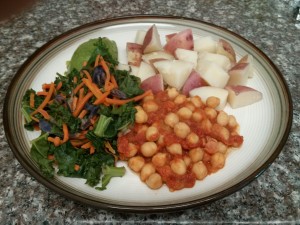 Best Foods for a Detox Diet
Best Foods for a Detox Diet
The best detox foods are vegetables, fruit, whole-grains, beans, nuts and seeds. Vegetables and fruits contain enzymes that help improve digestion and also many nutrients that are strong detoxifying agents. Vegetables, fruits, whole-grains and beans are high in fiber and therefore help toxins out of the body through the bowels. Nuts and seeds are high in fat-soluble vitamins that activate the brain cells and improve overall cell functioning.
All these foods are high in antioxidants, vitamins and minerals that activate the whole body in its job of pushing out toxins. The general well-being of the body is improved from eating this nutrient-rich diet. The cells, liver and bowels are supported in the detoxification process.
Home-cooking is the best way to go – try out my vegan and vegetarian Recipes for some ideas!
Fish in a Detox Diet
Cold-water fish like salmon, mackerel and sardines contain good fats that reduce inflammation and boost immune functioning. Unfortunately, the oceans and rivers are polluted with heavy metals that end up in the fish we eat. Larger fish such as swordfish, sea bass and tuna are heavily contaminated and are to be avoided altogether in a detox. Smaller fish such as monkfish, salmon and tilapia are okay to eat occasionally during a detox.
Getting the Balance Right
It is important to get the balance right in your detox diet. An extreme change in diet is likely to be unpleasant and also ineffective as a detox. Your liver and bowels must be in a good state to successfully cope with any outpouring of toxins.
If you normally eat a diet that is high in meat, dairy, wheat and processed foods, then immediately cutting them all out could cause stress to your body as it has not yet equipped itself to primarily digest healthier foods. So start out with a moderate change in your habits. Cut out the processed and junk foods completely, but cut down slightly on the worst detox foods. As your body adapts to the new diet, you can gradually reduce the level of bad detox foods and introduce more healthy foods.
If your diet is generally a healthy one, based mainly on freshly prepared meals, then you can follow a more restrictive detox diet. Moving towards a vegetarian or vegan diet with minimal wheat, dairy and alcohol is the way to go.
Don’t forget that supplements can help your detox be more effective. And make sure that you’re ready, willing and able to start a detox.
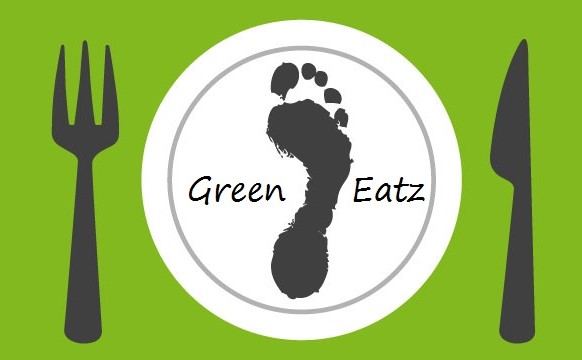
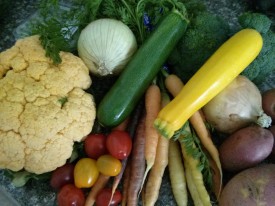
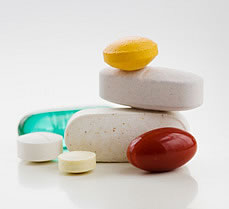
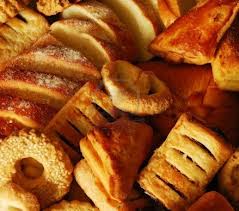
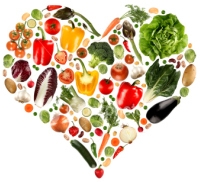
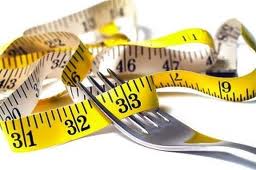

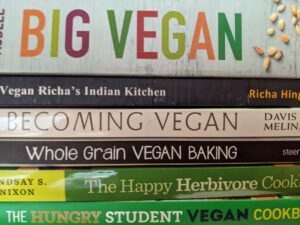
I am starting a detox today, Day 1. i understand fruits and vegetables are great, but what i can eat to stay full. Not be Hungary. Is there a list of foods that i can eat throughout the day while at work. And what is the best time to stop eatling?
Hey Melissa. Make sure you are eating protein throughout the day. At work, nuts and seeds are a great standby. At home, make sure you include beans, lentils, tofu, tempeh in your home cooking. I’d say stop eating at least a couple of hours before bedtime.
How can i detox and not loose weight , or ideally gain weight ? I eat naturally healthy organic not processed food . I also eat organic local meat , lots of butter and olive oil , and some gluten to keep weight on my body . I also drink alcohol so I definitely cut that out . Been using hemp oil on sweet potatoes and broccoli to get calories. But without the meat , dairy and gluten , im so hungry and loose weight . But also feel the need to detox . Im in my 50’ and have always bern skinny . People think its a joke when i say i want to gain weight and its not easy . But its true
I would suggest a higher intake of fiber and complex carbohydrates to maintain a healthy weight. Try foods such as brown rice, oatmeal, quinoa, beans, lentils. It is not enough to try and survive on vegetables alone!
Is unsweetened almond milk (Diamond brand) allowed on a detox diet? I’m looking to make some healthy smoothies using banana, strawberry, blueberry and I need a carrier to mix with them and water is too plain. I’d like to achieve a little creaminess. I will also freeze my fruit to help with this. Thank you for any advice.
I would suggest oat milk as a more environmentally-friendly alternative to almond milk. Almonds need a lot of water to grow and also require many pesticides to grow successfully..
Would a Cesar salad be safe I know there is usually croutons and Parmesan cheese, I know I would have to remove the croutons
Not really…usually contains raw eggs and/or mayonnaise as well as cheese and bread croutons.
This is super interesting! Thanks.. Im dealing w diabetes and have been on chemo twice. My body has been subjected to long term antibiotic use and am now coming off. My body is bloating hurting everywhere from inflammation and need to know how to manuver detox and what supplements to take! Im in pain!
Sorry to hear that Jamie. I think the best way forward is for you to consult a naturopath or nutritionist. You have a lot of issues that need a personalized approach through a detailed consultation.
Wisdom
Hello I’m thinking of having a ‘green’ drink (any green vegetable I can get my hands on) every morning for gut health. I have terrible bloating and IBS. Do you think this would be beneficial?
Personally, I’d say that raw vegetables would be too difficult to digest for a compromised digestive system. Try a course of probiotics to calm down your stomach.
My husband takes GTS Kambucha 16oz drinks they help his stomach big time. He drinks one every morning on an empty stomach. They are a little pricey $16.00 for a 6 pack at Walmart.
Great tip! Kombucha tea is a probiotic and contains many antioxidants – great for your liver and stomach 🙂
I’m going to start the purification and I’m wondering can I drink bone broth during the first 10 days?
It’s up to you! Generally, a detox does not include animal-based foodstuff and I would not recommend it myself.
Hi Hi!
Am planning to do a detox mainly to cleanse and lose some fats & weight due to BED,hopefully could be able to overcome this issue of BED 🙁
Intend to take detox drink & supplements.
Is taking oats with raw nuts through out the detox period ok?
Hi Lynn – Had to look up B.E.D. but I see it is Binge Eating Disorder. I’m far from an expert on this, but I feel that following a restrictive detox diet may not be an effective treatment for this condition. I would suggest talking further with your health provider.
Hello, I’m currently on day 17 of a 21-day cleanse. I’m eating nothing but fruits and raw vegetables and fresh juices. However, there was a package of edamame in our fridge and I decided to try it on my salad yesterday. Is edamame allowed on a cleanse? I know they’re soybeans. I’ve also been experiencing some heavy bloating over the last 24 hours. Is that due to the cleanse itself or the edamame? For the record, I usually never have that kind of reaction to edamame.
The bloating is possibly a result of an excess of fruit sugar causing fermentation in the stomach. Raw vegetables are also hard to digest. Personally, I’d suggest that this sort of extreme diet for such a long period would not be very good for your digestive system.
So noted! Thank you. I’m back to regular food now, anyway. I’ve had no more gas or bloating.
Raw veggies bloat the crap outta me. I have to cook them a little
If your body is unable to digest raw veggies, it is better to cook them and then be able to absorb the nutrients effectively.
If you haven’t had soy in 17 days then put it in your diet and are having symptoms I’d say your sensitive or intolerant too it. I’m on a 21 day reset gut cleanse for leaky gut and soy is a no no. I eat lentils and quinoa also to feel satiated and for protein. I’ve done this cleanse before and wow. The benefits were amazing
Hi,
My body has been screaming at me for help with detoxifying. About a month ago I was mainly healthy (gluten free, mostly dairy free, ate eggs and sushi occasionally, lots of veggies and fruit – about 30g of fibre daily) but my not so great habit was my slight obsession with chocolate. Like I could eat up 10 bars a week :/ … it’s obviously caught up to me now and I have a lot of inflammation in my underarm glands, lymph nodes etc.
How long should I do a cleanse for? And how strict should I be? I want to blend fruits and veg and drink it (with pulp) can I eat whole foods too or should I just do the drinks?
Swollen lymph glands are a result of bacterial or viral infections, where your body is trying to fight off these invaders. It is not the result of eating too much chocolate! Please consult with your doctor to find out if there is an underlying problem that needs treatment. A detox is a good way to boost your immune system so this could help kill any infection. Download my Detox guide above to see how to reset your diet – and hopefully control your chocolate cravings.
I eat Veggies, lentils, quinoa, coconut milk. Minimum fruit like berries only. And wild salmon. and no sugar. No soy no dairy no gmos only organic and no corn. No peanuts. It’s the hardest cleanse ive ever done but the benefits healed my leaky gut. The second I went back to dairy and crappy food all symptoms back. So I’m starting over again. Now this is my body and were all differant but theres a book called the virgin diet. You should look into it. Cutting out the major hi intolerance foods will do wonders
I am thinking of doing like a juice and vegetable detox once a week. Is this any good to the system or would I be doing some damages?
I’d say that this would do you no harm – but personally, I think eating a healthy diet every day of the week is a better way to go. Have a browse of my Nutrition category to find out more.
I am new to detoxing, how much water should drink?
Lots! It is dependent on so many things – but a good way to confirm you are drinking enough is to make sure your urine is very light-colored and mainly odorless.
Hi I just want to know if I will be allowed to eat dates my docker has put me on a veg only detox
Thank you
Dates are very high in sugar so they may not be suitable for a strict detox.
I would like to do a cucumber detox. I am underweight and would like to create a more regular eating schedule and felt like a detox would help to ‘reboot’ my system. How long would you recommend doing the detox?
If you are underweight, I would not recommend a cucumber detox as you will likely lose even more weight. Personally, I’m not keen on short juice detoxes as I feel they don’t have any long term impact on your health. Have a browse of my detox guide for ideas on how you can ‘reboot’ to a healthier diet. (Download above).
Whay about gluten free oatmeal.?
Oatmeal is naturally gluten-free, and is a great food for a detox.
What about chia seeds?
Seeds are packed with nutrients, after all they have everything they need to create a new plant. So, yes, eat them in moderation.
Hi – I am starting a detox which I have done many times however I am trying to come up with recipes as I end up hating tomatoes at the end normally and hoping to come up with more variety. The detox recommends to avoid Coconut products (milk, cream and oil) and I was wondering if you knew why? I can avoid all meat and dairy but would like to do some healthy curries as an alternative and not a fan or almond or soy milks.
Coconut products are high in fat, so its best to avoid during a detox. I suggest trying oat milk as an alternative to dairy – I find it much tastier than almond or soy milk. For recipes, have a browse of my Recipes or try some recommended cookery books in my Bookshop.
Is activated charcoal good for detox?
I would say the risks outweigh the benefits. There is no need to use charcoal for an effective detox and it can cause serious side effects. If you must, use sparingly and buy from a trusted source.
If I eat rice n flour basic thing will that stop the detox
It depends how much you eat of rice and flour. Eat brown rice and look for gluten-free flour, but keep both to a few servings per week. Fill up with vegetables or better carbs such as millet or quinoa.
Hi! I was wondering if I can have honey while on a detox? Thank you
Yes, in small amounts.
What about the phytate in grains and beans that prevent proper mineral absorption?
Generally, after foods have been prepared and cooked there are very few phytates left to interfere with mineral absorption. I can only see this being a problem if you have a compromised digestive system, eat mainly raw foods, or very low levels of minerals. In those cases, I would suggest getting your mineral levels checked in a blood test at your family doctor. I’ve been a vegetarian for 25 years, eat loads of grains and beans, and have never had any mineral deficiencies.
Omg, I need your help..this is my 1st detox. Day #1 I took my detox liquid in the morning.. Than I ate bake beans that had a lil bark sauce in it. Then for lunch, I had vegetables. Then for dinner, I ate both beans & vegetables…went to the bathroom several times. Day 2 I decided to the detox in the morning but decided not to eat because I had to take daughter to her doctor’s Apt. So for lunch, I had a tossed salad from Zoe’s Kitchen(no meat) & for dinner homemade popcorns. Day 3 I decided to take the detox in the evening. No breakfast or lunch. I cooked shrimp & broccoli with lil cauliflower rice & pour a lil teriyaki sauce. Day 4 I took the detox in the afternoon. for dinner I ate 2shrimp kibosh & Lil vegetables. Then here’s where I messed up..I ate pretzel, than pretzel wit peanut butter stuff inside, & organic chips..So now I have with going to the bedroom..smdh I know I need to stop snacking a eat more..however, my problem is I eat too much protein n not enough veg & fruit. That’s why I decided to do the detox to stop eating chicken. Only fish & shrimp..so far I have eaten nothing but shrimp. After today ima start over wit my food..can you please help me?
Hey, if you could try to eat regular small meals then it would help you reduce your snacking. Don’t forget to include good carbs in your meals to help fill you up – brown rice, quinoa, baked potato etc. If you need to snack, try more healthy alternatives such as an apple or banana or some raw nuts. Good luck!
Great Questions and Great Answers. I learn a lot here. Do you have a FB, IG or Blog. I’d like to follow.
Yes, FB Green Eatz and twitter @greeneatz. Links in left-hand column.
Greetings,
I am doing a 5 day juice detox, I wanted to eat small meals for diner. Ie: beets, spinach, maybe kale will it ruin the detox?
I’m not a fan of juice detoxes as they don’t give your body a chance to eliminate toxins in a controlled manner. Even so, I can’t see the harm in eating some vegetable-based meals during this type of detox.
Hi, I am on a juice cleaning Dite for about 7 weeks, and walk at least 5 miles daily. I have lost so much weight and I didn’t have any problems since three days ago I have an abdominal and back pain. My question is , Is this juicing cause abdominal pain ?
I drink 7 cups of juice daily, mix of fruit and veggies but mostly veggies.
IMO 7 weeks is too long to stay on such an extreme diet – you will be missing out on fiber, good fats and protein at the very least. I’d suggest gradually increasing your intake of solid foods and reducing your juice intake until you reach a well-balanced healthy diet. Please consult your doctor if the pain persists.
Hi, I just started detoxing. I drink 3 smoothies on a day and have 3 snacks (fruits, vegies or nuts). Is it heatlhy to detox like that? Or could I rather one meal?
Small, frequent meals are better than one big one. Just make sure you are not eating too many calories – and perhaps vary your protein intake as nuts are high in fat
I’m addicted to coffee. How can I drink coffee during cleansing ? Should I wait to not take it first thing in the morning or switch to the after noon? before or after meal?
If you’re addicted to coffee then you should definitely cut it out during a detox. It will most likely be difficult as caffeine is quite addictive, so maybe best to cut down gradually beforehand and then eliminate entirely during your detox.
Jane, coffee is a natural diuretic and I see some sites say it helps frequency of urination so if mixed properly with lots of water intake it can help with detox. I am not sure what to believe anymore. The other site gave a explanation on why it helps, this site simply states “Caffeine leads to increased levels of toxins in the body” with no further explanation…
Caffeine interferes with normal liver function, according to nutritionist Patrick Holford, and is therefore not recommended on a detox as the liver is the most critical organ for detoxifying. However, lots of evidence now shows that a few cups of coffee a day is beneficial to health – so I’d suggest cutting it out during a detox, but drinking it sensibly when on your regular diet.
Hey so I am gluten free and I have been following this detox diet by just drinking teas and eating only fruits and vegetables and nuts but I wanted to know since I’m gluten free can I eat the gluten free breads And gluten free noodles or is that bad for the gut too like wheat
Hey Nika, yes, you can eat gluten-free breads and noodles on this detox but keep them to a minimum. I would also suggest varying your diet by adding beans and lentils – nuts are high in fat so should not be your main source of protein.
Hi, I’m approaching 60 years of age. I detox and cleanse periodically, workout and eat well. My question is, I started taking a cell synthesizer about 4 months ago. This is my first detox while taking it. My cleanse is herbal. So there’s no chemicals. Should I continue taking it during my detox or stop until I’m finished ? I’ve read yes in some articles and no in others. What’s your take on this?
Sorry, I have no idea what this is! If it’s medically prescribed, I’d suggest discussing with your doctor.
Are all fruits okay to eat? You talked about cutting off sugar but some fruits contain sugar.
Apples, bananas and pears are the best fruits for a detox. Natural fruit sugar is fine as long as you don’t eat fruit excessively. And be wary of juicing – you lose the benefit of the fiber in the whole fruit.
Can you take a detox supplement when you have non alcoholic cirrohsis and what types of meds can not be taken with a detox supplement.
You need to consult with your doctor on this matter.
I already eat in a pretty restricted way….I eat Gluten Free, No Sugar, & I limit my carbs (I do not allow myself to get into ketosis tho, as we have found my body doesn’t react well with that). I also pretty much do not do grains either…..esp not corn, as it seems to have very negative effects on me. I do eat lots of nuts tho! So most of my carbs generally come from nuts, fruit, veggies & occasionally sweet potatoes. I Recently thought it wld be “ok” for me to eat a few things made of corn, & even a gluten free biscuit (which was dumb & a very bad idea bc I know my body doesn’t react well with rice or potato starches that’s in the GF flour), but…having said all this; I can totally feel my body screaming for a detox! Just wondering since I’m already so limited on what I eat, & honestly have just not been able to think of things that wld be best for me on a detox, could u give me an idea of something for breakfast that is good to have during detox? Do U have any other suggestions as to what I can eat to get good carbs & good fiber (without grains) & what to eat for enuf protein if I don’t need to eat meat while detoxing? I’m thinking I can have Salmon from time to time….or is that a no as well? What about drinks (I’m sure water is best, & im great with that, but what are good things to add to my water sometimes…like fruits or herbs, etc)? Just need a lil help getting started pls. Thanks so much!
Hey Cindy – what about home-made baked beans for breakfast? Or scrambled tofu? Both can be found in the Recipes page of this blog. You can also download my free guide at the top of this page for more info on detox diets.
Can i eat bean stew as a snack during a smoothie diet for weight loss
Personally, I wouldn’t recommend a ‘smoothie diet’ for weight loss. Eating healthy foods in a smaller quantity would help you to adjust your diet long-term and reduce weight slowly and effectively. But, no problem, with the bean stew 🙂
Can I have 4 slice sausage pizza
No! Processed, high in salt, high in fat and made from wheat…all bad 🙁
I just started the detox and flush whole body cleanse and I really want this to work but what’s the best fruit and vegetables I want to be in control because I want this sooo badly 🙏🙏🙏🙏🙏🙏
Download my Detox Guide at top of page for more info on the best and worst foods for a detox.
I take Vyvanse. I’m curious if it helps to detox my body from occasional benzo use, (prescribed as needed) faster than just night at all.
When taking prescription medication, it is not recommended to follow a detox regime as there may be interactions with the drugs. Always check with your doctor first.
Can I eat chicken when detoxing?
For a less intense detox, a few portions of chicken per week would be ok. I’d suggest that you limit it to free-range chickens – and definitely not factory farmed or rinsed in bleach.
Hello there, I’m an African, so what about boiled mealies or flame braai mealies, can I eat those and if yes,how much during 14 days diet’s.
Yes, mealies or corn/maize is fine for a detox. Don’t rely on it as your main carbohydrate source as it is low in vitamin B3 which can lead to Pellagra.
I generally eat very well. I cook most of my meals. I eat practically no processed foods. I do drink wine every night.
How about turkey soup which I make with lots of vegetables like cabbage, carrots, onions, kabocha Squash, celery and green beans. I like to use the carcass of my christmas turkey.
Well that Christmas Turkey may not be so good for you – see why here.
on a high fruit and vegetable diet how long would it take to clean my system
It depends on how healthy you are to start with, but I’d suggest at least a month. Don’t forget to include protein sources in your diet – and consult your doctor if you take medication or suffer from any chronic conditions.
If one eats fried egg on day six of the 10 days detox, what happens?
Nothing much!
Hi there, what about eggs?
Limit to a maximum of three per week for a less intense detox.
Pasta with tomato sauce no meat. Half Italian on my mother’s side. Hope that is ok. I make my sauce. I can give up meat. Fine with me. Hope I can have nice portions of pasta. In Italy they ate it for lunch and dinner late. They are all slim.
Yes but the wheat from which pasta is made in Italy is much healthy
What about wild alaskan true cod. Is it good 2eat while detoxing?
Doubtful. Most fish are contaminated with plastics nowadays 🙁
Hi is peanut ok for a snack for this diet plan
Hey as long as you eat the raw version without salt or roasting – and in moderation too.
Hello,
I heard what I think is pure hogwash by a person with a “detox clinic” that has a lot of success healing people that doctors gave up on. Fresh tuna is served because the administrator thinks it detoxes metals and in the same breathe says the amount needs to be monitored because of mercury. I asked how that works and where is the informational source… To no avail…. I am a carnivor but I don’t need or want meat daily and thrive off a plant based diet in general.
So, the question is ; Is there any inkling of truth to tuna helping detox metals?
HMM..does sound very suspect to me. As you say, tuna is something to avoid as it is heavily contaminated by mercury. It is a good source of omega-3 fatty acids which are essential for good health, but there are plenty of other sources such as flaxseeds, walnuts and soybeans. Cold-water fish such as sardines and mackerel are also good sources – smaller fish are less contaminated than the fish at the top of the food chain like tuna.
Hi Can I eat eggs when detoxing?
A few per week are unlikely to do any harm.